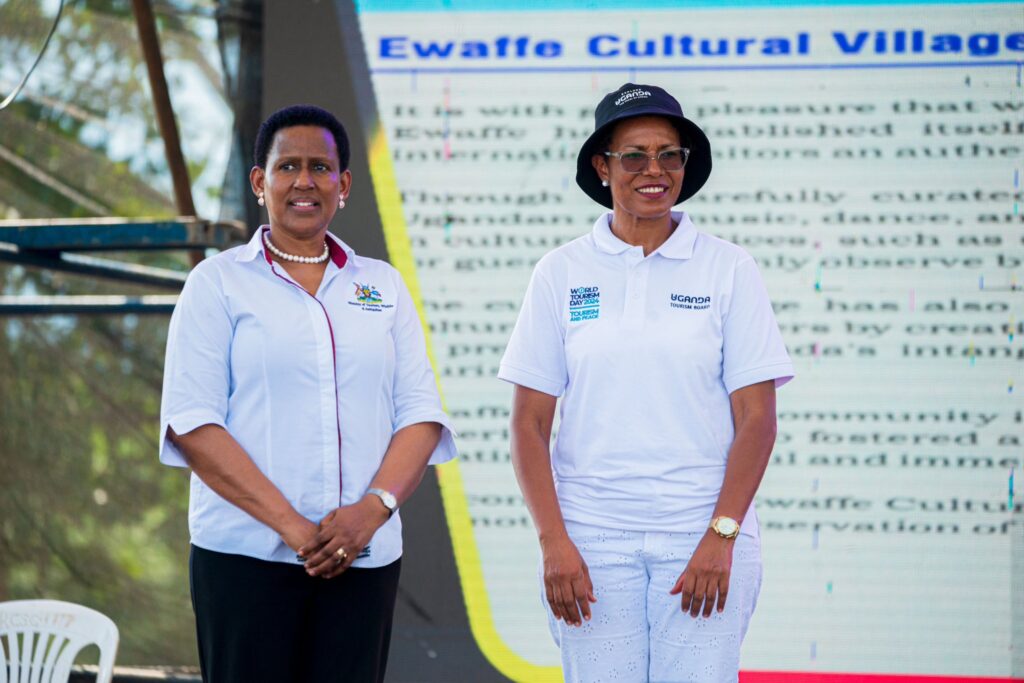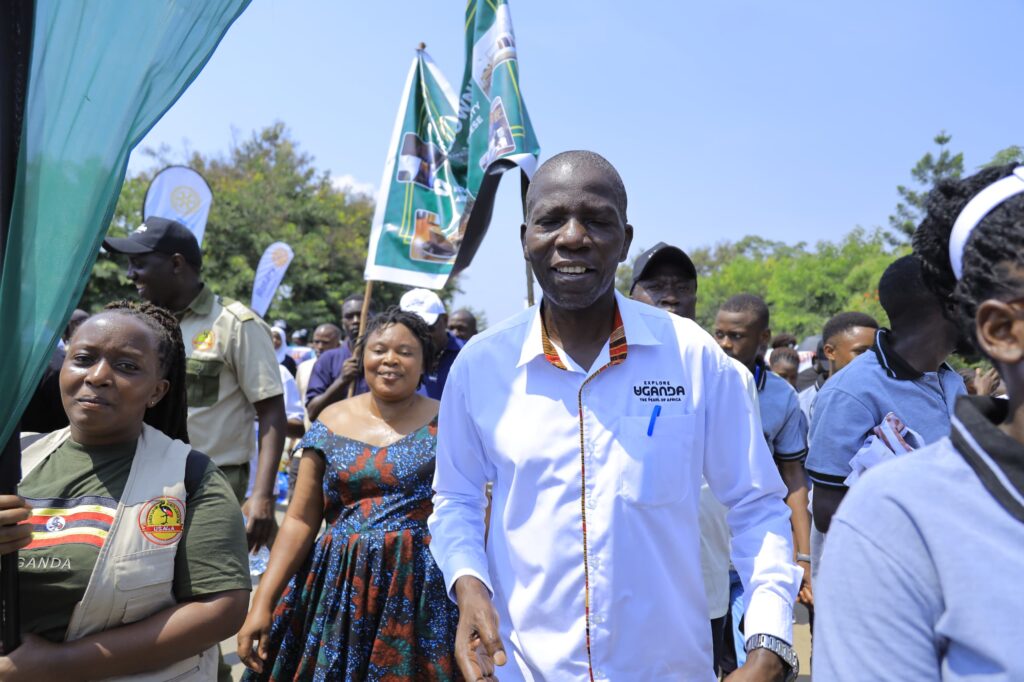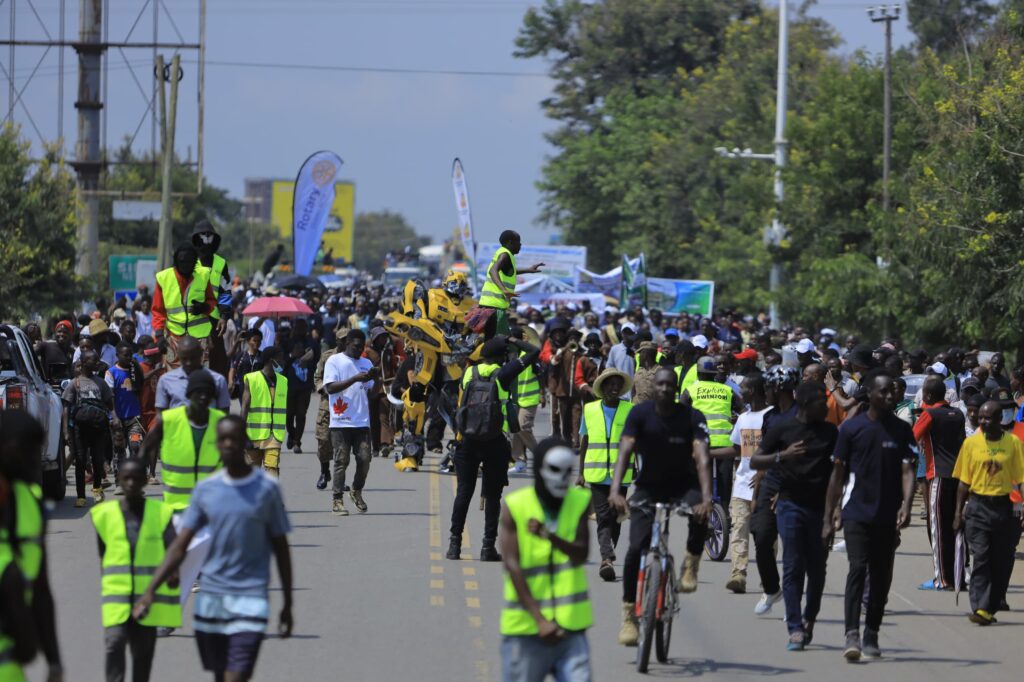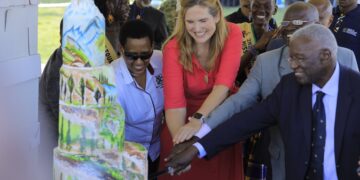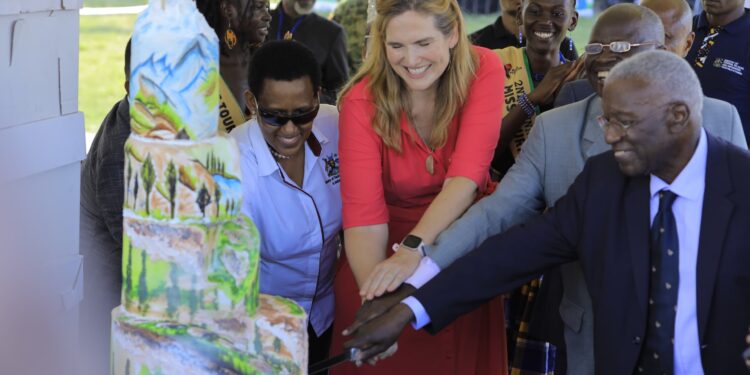The Government of Uganda has called for increased private sector investment in the tourism sector, particularly in areas such as accommodation, entertainment, and specialized tourism services.
Speaking during the International World Tourism Day celebrations, themed “Tourism and Peace,” in Kasese District, President Yoweri Kaguta Museveni pledged that the NRM Government will continue to create a conducive environment for businesses to thrive.
He emphasized the importance of peace in promoting tourism, stating, “We will ensure that the world views Uganda not only as a destination for its natural beauty and rich cultural heritage but also as a place where peace and harmony prevail.”
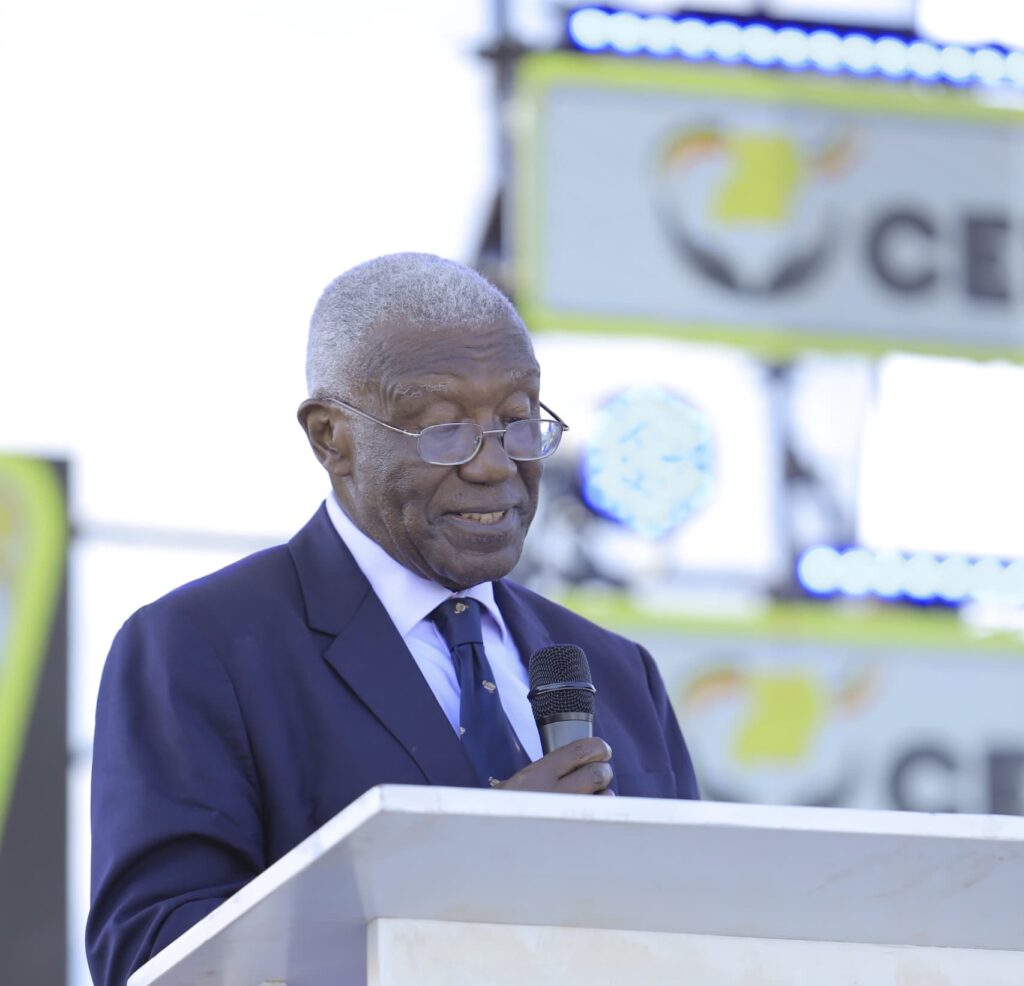
President Museveni, represented by the Minister of Tourism, Wildlife and Antiquities, Col (Rtd) Tom Butime, revealed that the government has a comprehensive plan to position tourism as a cornerstone of socio-economic transformation. “This is outlined in the tenfold growth agenda, which aims to exponentially grow the tourism industry and maximize its impact on peace and economic development,” he noted.
He further stated that the government has integrated tourism into national development plans to align it with Uganda’s broader economic objectives, particularly those detailed in the National Development Plans III and IV. This includes the development of tourism infrastructure, enhanced marketing strategies, and the promotion of Uganda’s cultural and natural heritage to boost both domestic and international tourism.
By fostering peace and stability, the NRM government is ensuring a favorable environment for tourism to thrive, thereby contributing to broader goals of industrialization, wealth creation, and poverty eradication.
Additionally, Museveni highlighted that tourism plays a crucial role in conserving Uganda’s biodiversity and preserving its cultural heritage, making it a vital pillar in the nation’s development agenda.
He acknowledged challenges such as infrastructure development, human-wildlife conflicts, land disputes, poaching, and encroachment on heritage sites. However, he assured that the government has developed a comprehensive plan under the 4th National Development Plan (NDP IV) to address these issues from FY 2025/26 to 2029/30.
“We will continue investing in modernizing tourism infrastructure, diversifying our tourism products, and building the capacity of our workforce to maximize tourist satisfaction, expenditure, and length of stay,” he added.
The government has set an ambitious target to grow Uganda’s economy from the current GDP of USD 50 billion to USD 500 billion by 2040. A significant part of this growth will be driven by leveraging Uganda’s tourism potential. In the same period, tourism foreign exchange earnings are expected to increase 25-fold, from the current USD 2.0 billion to USD 50 billion by 2040.
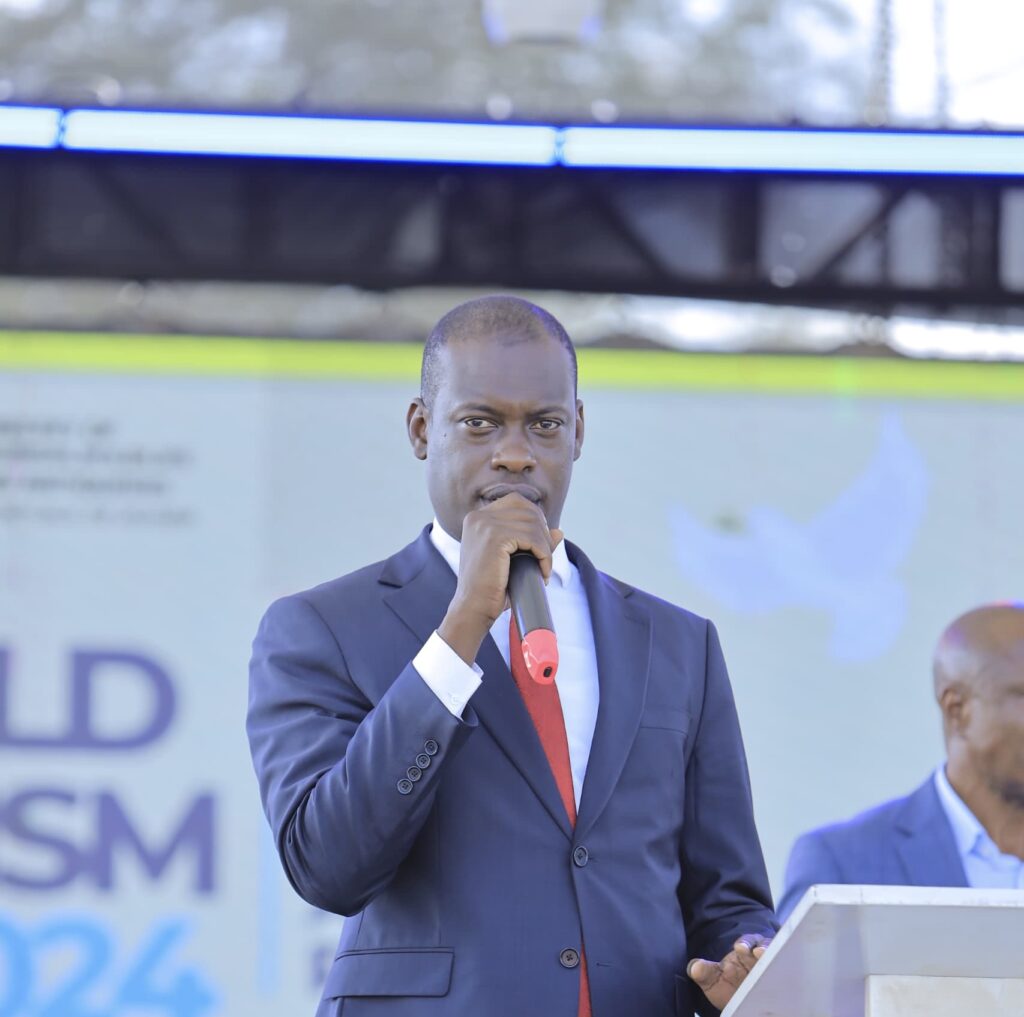
Martin Mugarra, the State Minister for Tourism, emphasized that the theme “Tourism and Peace” underscores how responsible and inclusive tourism can serve as a powerful tool for conflict resolution and reconciliation.
“Tourism has the potential to heal wounds and rebuild societies, especially in regions that have faced socio-political turmoil. The Rwenzori region, where we are gathered today, is a testament to the transformative power of tourism in restoring hope and livelihoods,” he said.
“The impact of tourism on peace is not just theoretical. Around the world, tourism has helped rebuild post-conflict communities, restored damaged ecosystems, and supported local economies. Uganda is no different. We have seen firsthand how tourism can create opportunities for dialogue and reconciliation, even in regions affected by conflict and unrest.”
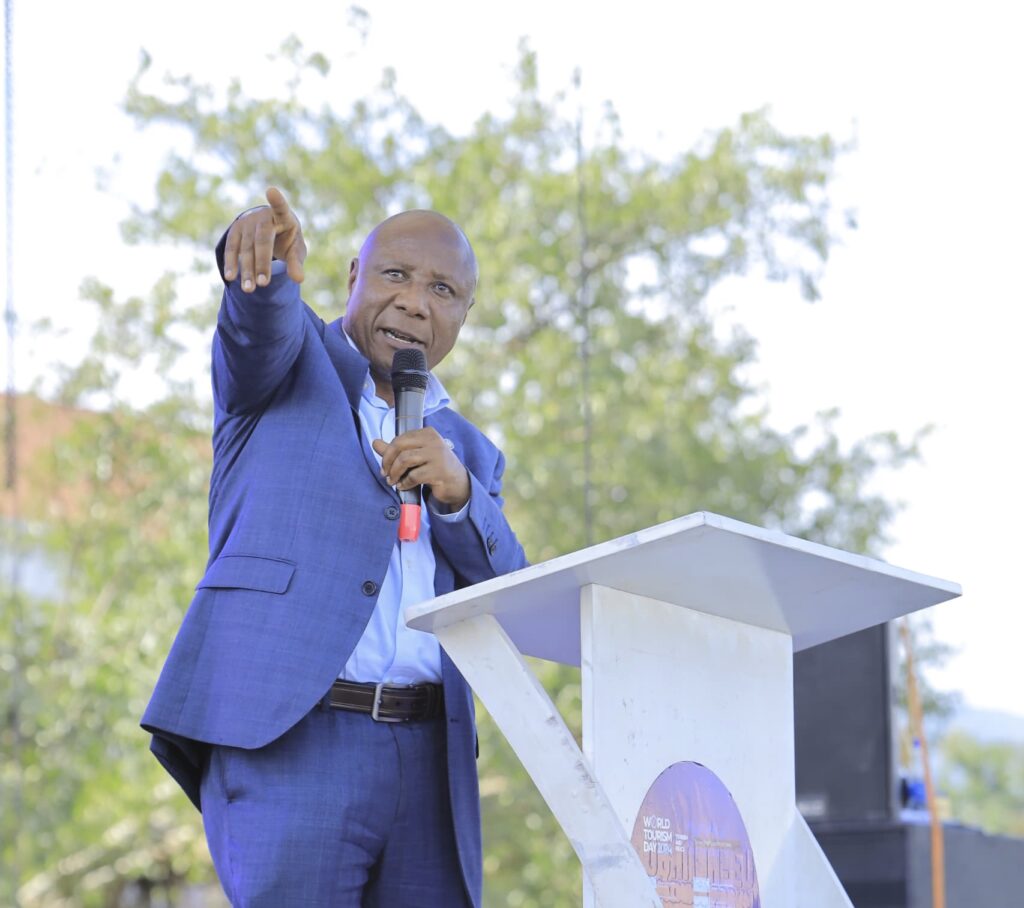
Doreen Katusiime, Permanent Secretary of the Ministry of Tourism, noted that the theme of the day resonates strongly, emphasizing the powerful connection between tourism and the promotion of peace, understanding, and sustainable development.
“In a world often marked by division and conflict, tourism stands as a beacon of hope, bringing people together and fostering reconciliation. Tourism is uniquely positioned to promote values that underpin peace, such as social justice, human rights, economic fairness, and inclusivity,” she stated.
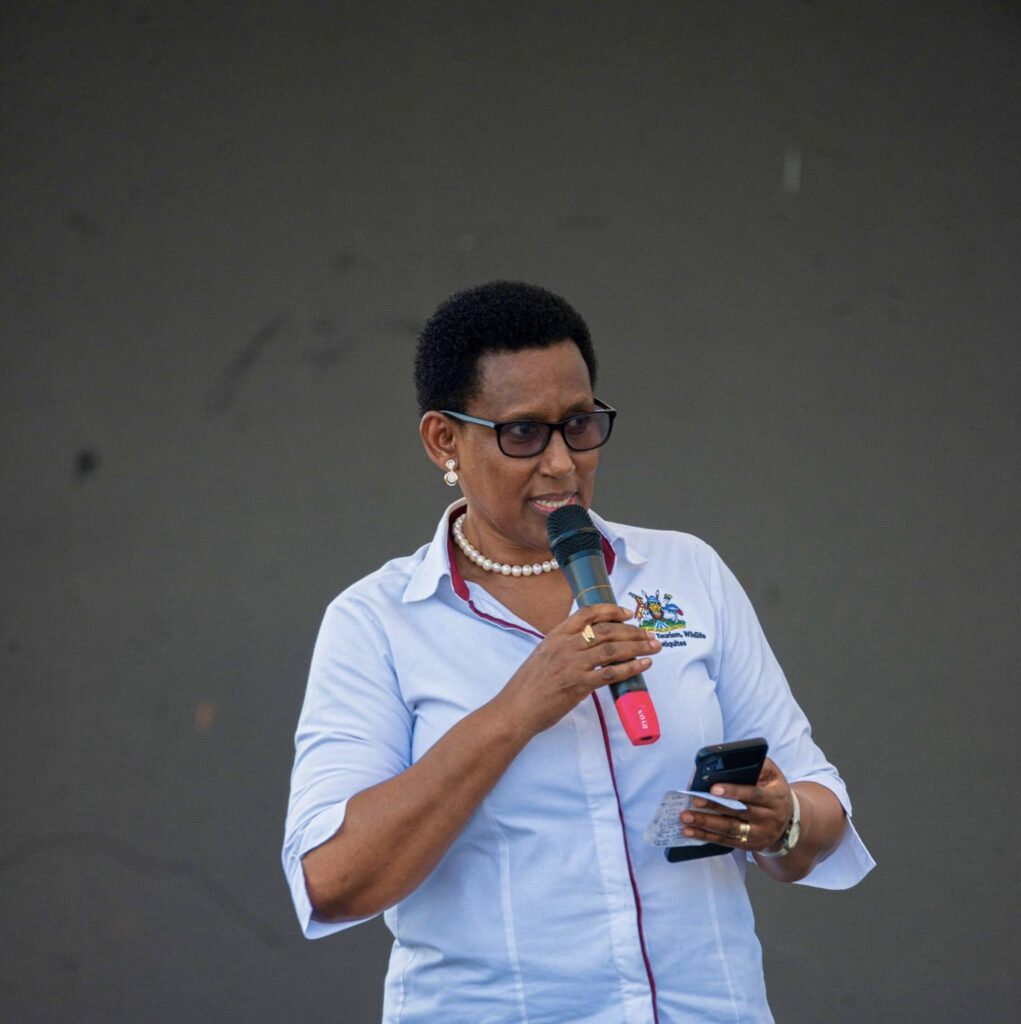
She added that tourism provides a platform for cultural exchange and mutual respect, allowing people to break down barriers and build bridges across borders, cultures, and communities.
“By offering shared experiences, tourism encourages us to embrace our differences while recognizing our shared humanity, contributing to a more peaceful and interconnected world,” Katusiime said. “In regions once affected by conflict, such as the Rwenzori, tourism has played a critical role in rebuilding communities, restoring hope, and promoting economic recovery. It is through tourism that these areas have been able to attract investment, create jobs, and improve livelihoods, paving the way for long-term peace and stability.”
On behalf of the development partners, Netherlands Ambassador to Uganda, H.E. Fredereike Quispel, said the Tourism sector in Uganda has managed to attract European companies to invest in the sector, with many developing sustainable tourism products, while marketing Uganda as a premium destination to tourists.
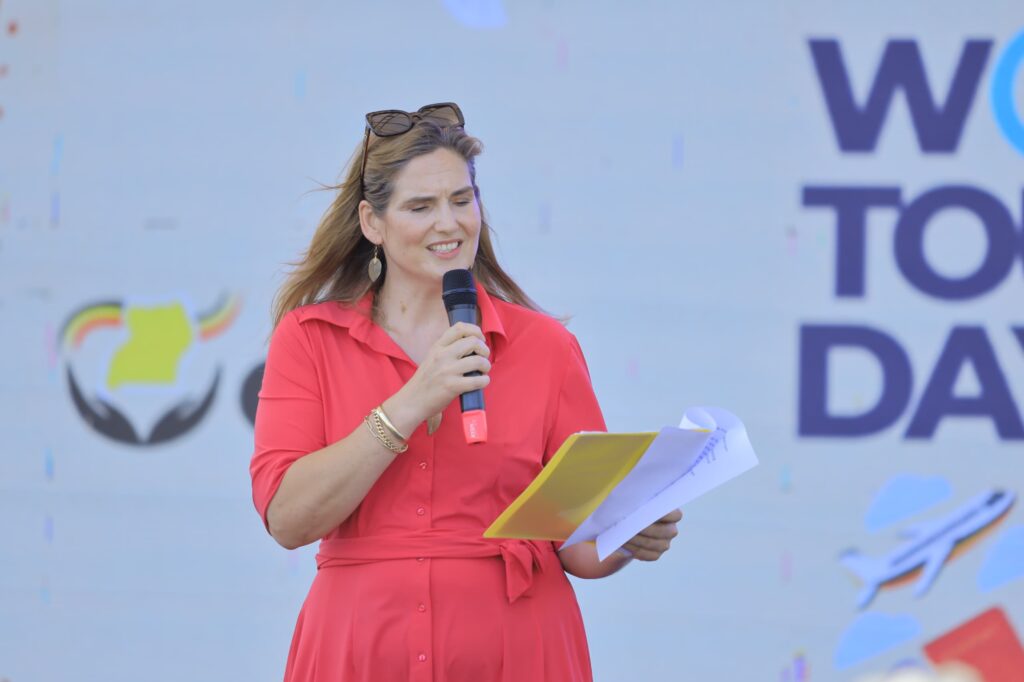
“I am told that last year, the number of tourists from Europe increased by 42% which is very impressive. It’s not surprising that the government of Uganda has identified tourism as one of the key sectors to achieve its bold and ambitious plans for economic growth,” she said.
She added that the theme for this year’s celebration is tourism and peace, a very apt topic to all.
“Without peace, no country would be able to achieve the development of its economic objectives without peace, tourism potential will go untapped without peace, there can be no compass conservation of our natural world, our culture and our societies. Peace is fundamental for the well being and progress of humanity,”
Representing the private sector, Yogi Bigirwa, President of the Uganda Tourism Association, said that thriving tourism creates prosperity, from the household level to the national economy, with a multiplier effect on almost every aspect of life.
She was represented by Vice President Isa Kato, who reflected on the recovery of the Ugandan tourism sector, particularly in light of the 2020-2021 pandemic that brought the industry to its knees.
“The government has made several interventions, such as investments in security, transport, and energy infrastructure, all of which have contributed to the sector’s recovery to about 83% of pre-pandemic tourism numbers. I would like to extend our gratitude to the Ministry of Tourism and its agencies, under the leadership of Rtd Col. Dr. Tom Butiime, for steering this recovery,” Kato concluded.
During the celebrations, a number of organizations and individuals were recognized for their role in the promotion of sustainable tourism.
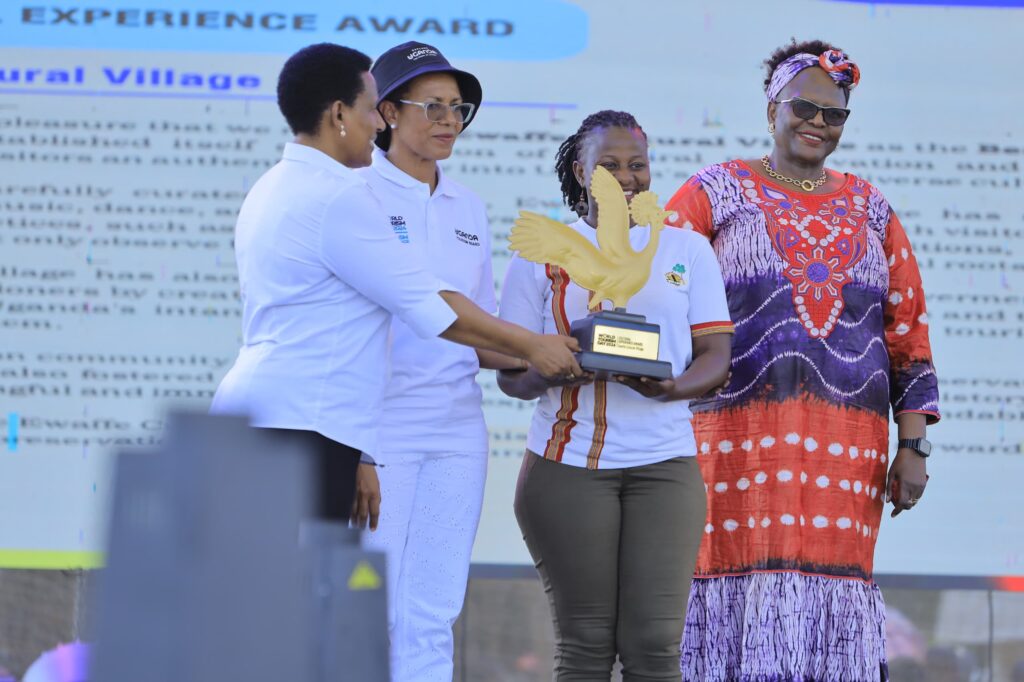
Also in attendance, was the State Minister of ICT and National Guidance, Godfrey Kabbyanga Baluku, members of Parliament, Religious leaders and area local leaders, among others.
